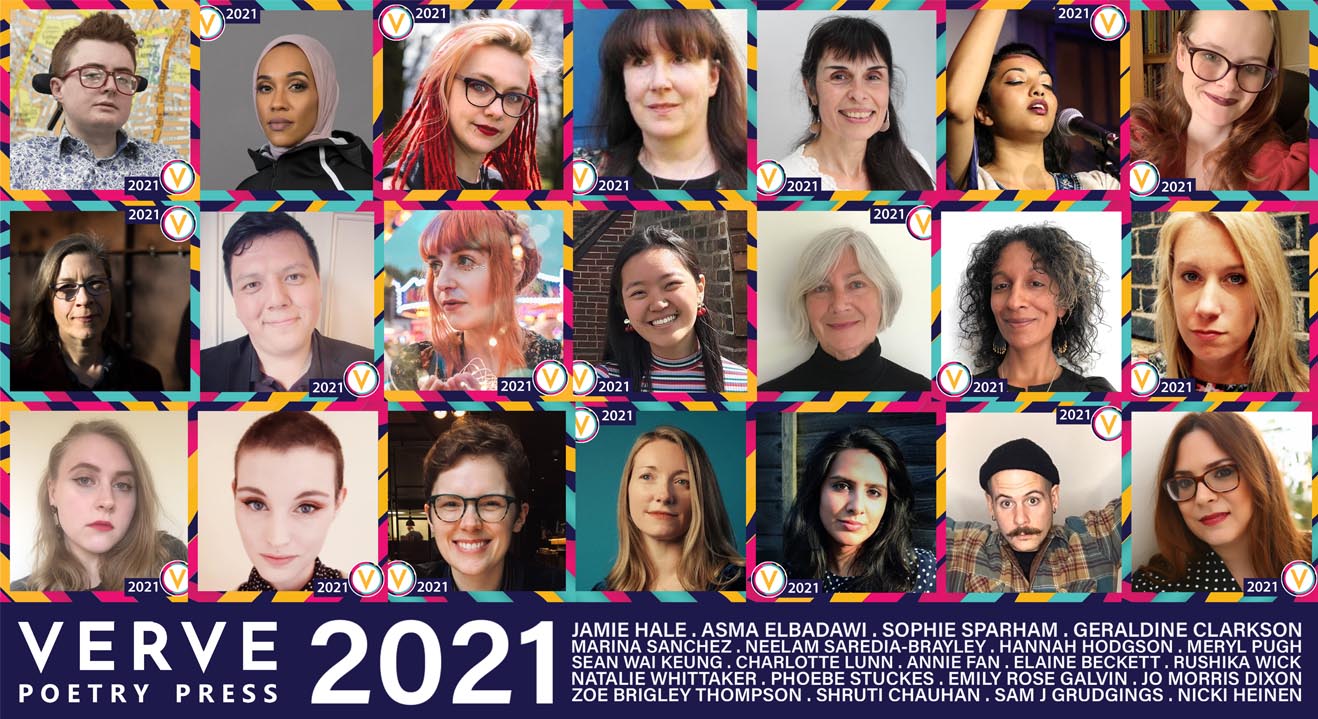
Verve is beyond proud to announce that we will be publishing 21 new pamphlets and collections in 2021 from accomplished and new voices. No matter your taste in poetry, you are bound to find a new favourite.
See our list of releases below:

Verve is beyond proud to announce that we will be publishing 21 new pamphlets and collections in 2021 from accomplished and new voices. No matter your taste in poetry, you are bound to find a new favourite.
See our list of releases below:
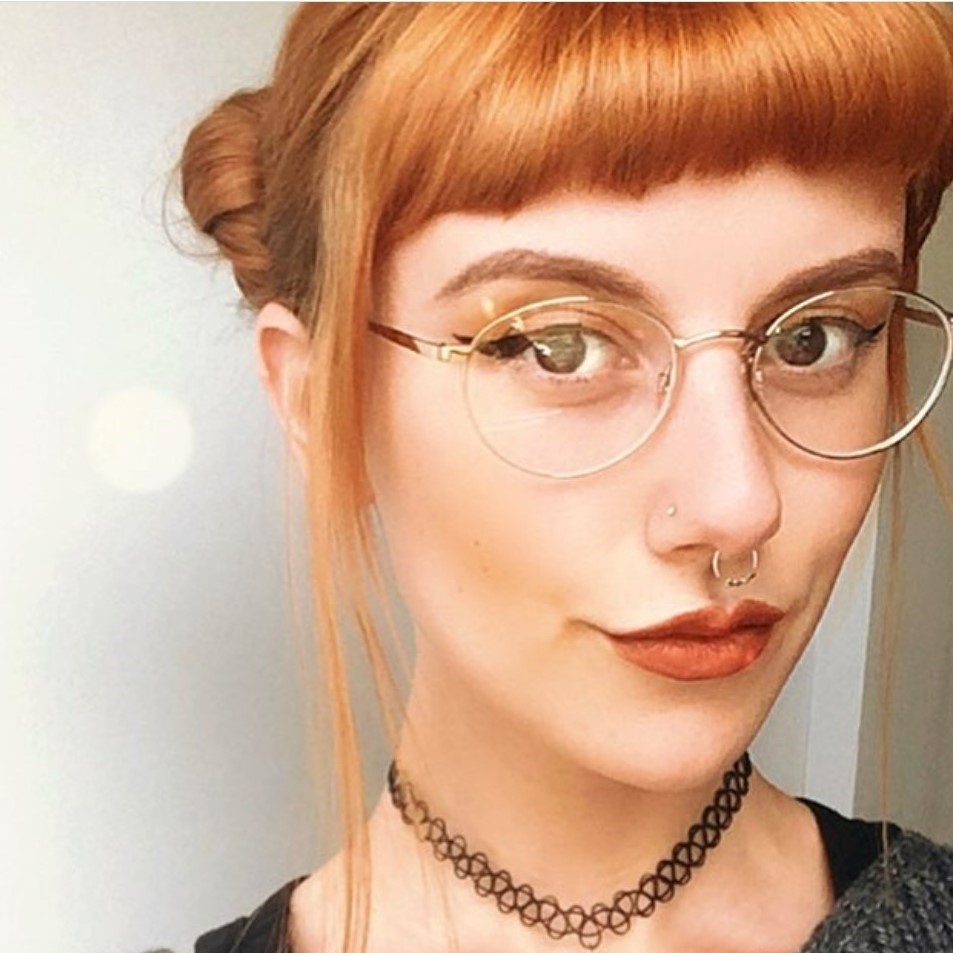
Scarlett Ward’s incredible debut collection ache was published last year, and quickly became one of our best selling titles of 2019. With the launch of an eBook edition (which you can find HERE ) and an upturn on poetry purchasing generally during lockdown, ache has been soaring once more. it seemed like a good time to catch up with Scarlett and see what she feels about the collection know and what she has been up to since.
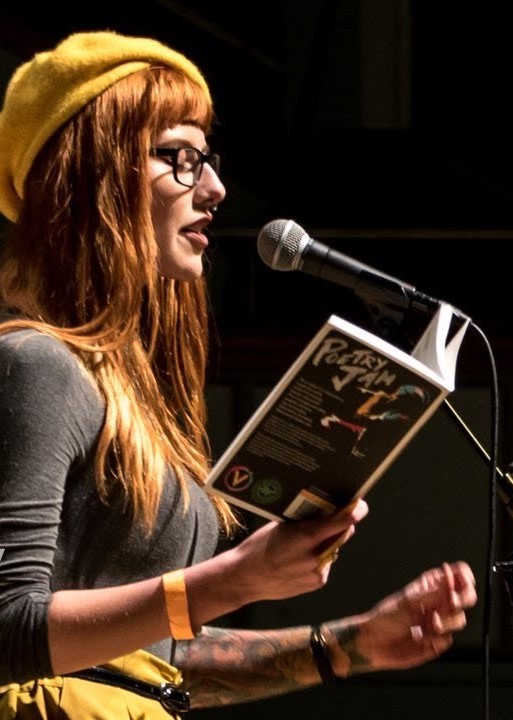
It’s been a year since you handed in your finished manuscript to us so that we could produce your wonderful book ache. Lots of poets are quite quick to outgrow their work. How do you feel about the collection now?
I remember what a wonderful feeling it was to finally hand it in after working on it for so long! Some poems I find quite difficult to return to, especially ones that deal with my sexual assault and mental health problems, however over time I’ve found that the more freely I can revisit them the less they haunt me.
What’s nice is being able to revisit my poems and perform them from a much stronger place. I feel that I’m constantly maturing and evolving, but these poems were absolutely authentic to my experiences and the way I wanted to deliver them and I’m still very proud of what I produced.
Instagram question from Hannah Marie: How does your work change from first draft to final book? Also what is the editing process like?
In the beginning I was writing as much as possible and it was only when I felt I started to develop a theme and a tone within my poetry that I felt ready to start bringing a collection together. That’s a really important step actually, because the way in which your poems interact with one another in a collection influences the impact and understanding of the entire book, so I spent a lot of time with print-outs littering my living room floor agonising over what would be the right order for my book.
I think the editing process is as important as the creation process, and I actually cancelled a lot of social plans because I was so thoroughly consumed by my editing for a long time. As agonising as it is, I really love the process! Jo Bell said “cut the last two lines of your poem” and whilst you must obviously take that advice with a pinch of salt, it has actually served me extremely well! “How To Be A Poet” by Nine Arches Press taught me a lot about editing and the importance of making every single word “earn” its place in the poem.
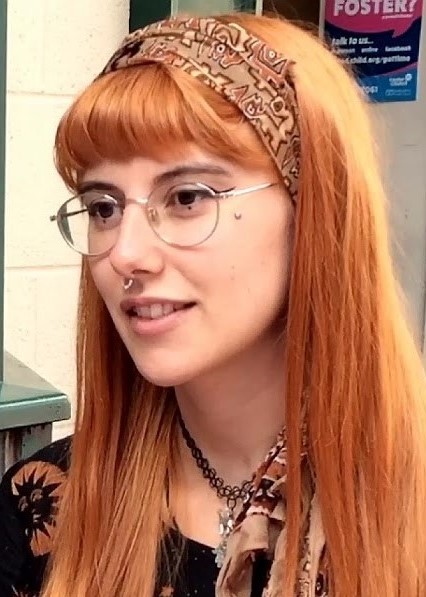
I never trust someone who tells me that they don’t edit and only preserve the raw first draft. Surely we mustn’t be that arrogant to think we are above improvement!
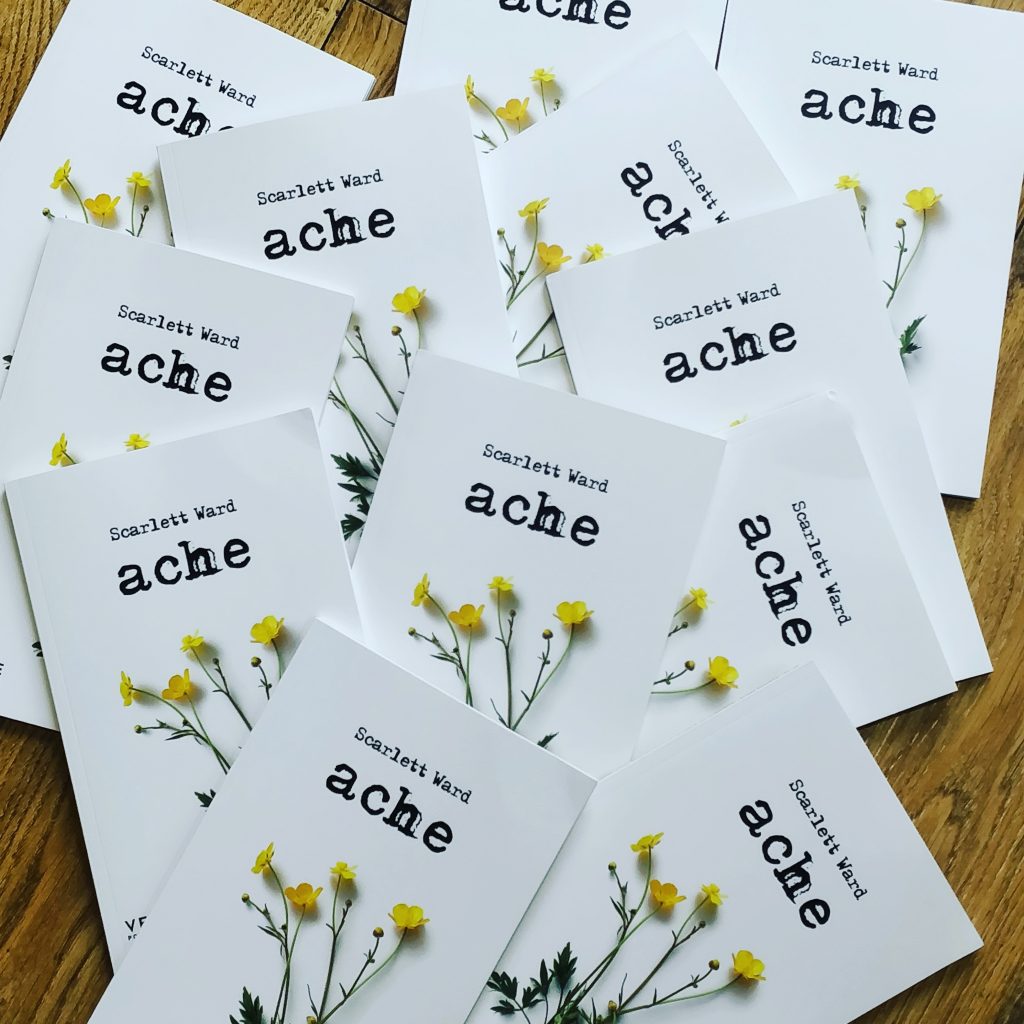
Instagram question from Hayden Robinson “did you find it helpful to research a publisher?”
Oh yes absolutely. I always knew I wanted to submit to Verve Poetry Press and that was because of what I had seen from them. My first encounter with Verve was being selected to have a poem published in the anthology celebrating the 5 year anniversary of Beatfreeks. I saw how this community of diverse and electrifying voices was being represented and I knew it was something I wanted to be involved in. I read Amera Saleh’s I Am Not From Here and Casey Bailey’s Adjusted and loved the quality of the books being produced. It’s really important to read books coming from the publisher you’re considering. I was dying to be part of the exciting and lively scene that Verve was building in the Midlands and took steps to put together a manuscript with Stuart’s help and guidance. My advice would be to research into and get to know a publisher and what they like to print, and see whether you would be a good fit together.
What are you busy with poetry-wise in lockdown?
At the moment I am busy working on my online workshops and editing services. I found that I have a real passion for the editing process, which I think originated from my day job as a copywriter, and then was exacerbated by my own personal experience publishing ache. The past few months I’ve been taking on clients who are looking for guidance, advice, proofreading services and general help with putting together their own collections.
I put the workshops on my Patreon, a subscription platform through which I can provide members with together writing prompts, exercises, wider reading and open submission recommendations. I’m finding it really fulfilling, and if anyone wants to sign up my shop is www.patreon.com/swbpoetry .
What are your plans for afterwards and where do you think you’ll take your poetry next?
I feel like my poetry is maturing all the time. I’ve always been an avid reader but at the moment during lockdown I am consuming books quite ferociously and I think this is one of the best ways to develop a critical perspective of the landscape of poetry to which we are currently contributing and being influenced by. I’m currently enjoying writing freely for various anthologies or competitions. I don’t think I’ll release another collection for a while as I am just enjoying the inhale after the great exhale that was ache.
Following on from a storming launch at Verve Poetry Festival in February, which everyone agreed blew the audience away, Genevieve Carver and her band, The Unsung, had to cancel most of the planned tour of their incredible poetry show, A Beautiful Way to be Crazy. The tour will be back, and when it is you should definitely see it, but in the mean time, we asked Genevieve to describe it to us and to explain how it fits together with both her solo performance and page poetry.
It seems a complicated move for a poet to form a band to create a poetry show. What made you want to follow this route?
This is the second show I’ve made with multi-instrumentalist band The Unsung (Ruth Nicholson, Tim Knowles and Brian Bestall). Our first show (confusingly titled The Unsung) was all about people whose deaths were caused by music – I’ve always been fascinated by the power of music, both dark and light.
With both our first show and A Beautiful Way to be Crazy, it made sense to work with live music firstly because of the subject matter, but also because I’m a big believer in bringing poetry to new audiences, and I think music gives people a ‘way in’. Plus, the sound and rhythm of words has always played a big part in my writing, and I tend to see poetry as a kind of music written with words anyway.
It is an extremely enjoyable but also a moving show. What were the key messages you were trying to communicate?
The show explores female experiences in the music industry, but also covers broader themes to do with gender, mental health and confidence.
Women make up just 30% of the music industry as a whole, and as little as 2% in certain, usually more tech-heavy roles. At the time I started researching this as an issue, I was also was starting to realise a lot of things about my own journey into performing – the confidence I lacked as a younger woman, the way I always felt the need to apologise for taking up space in the world. I think gender stereotypes are something you can go a long time without seeing, but once you see them, they won’t leave you alone, so I delved further and further in, talking to more and more people about their experiences.
I ended up interviewing almost 50 female and non-binary music practitioners including singers, instrumentalists, sound engineers, producers and events promoters and covering genres from classical to folk, electronica, rock, pop and jazz. I interviewed performers in a sex workers’ opera, internationally touring DJs and members of an all-female band of adults with learning difficulties. The Unsung has always been about bringing to the fore the stories of people who otherwise wouldn’t be heard, so it felt right to talk about my own experiences alongside a diverse range of other voices.
There are some other poems in your book of the show for A Beautiful Way to be Crazy that come from an earlier time when you were tending to work as a solo poet. How did you get into poetry, and how has your career progressed over time?
When I was about twelve years old a school friend came over and saw The Penguin Book of English Verse by my bedside. ‘You’re not actually reading that for fun are you?’ she said, and from then on I thought a love of poetry was something you were supposed to keep secret.
I wrote bits in my bedroom through uni, but only really got into it when I moved to Sheffield after I graduated. I was really lucky in finding a buzzing spoken word scene here, and started doing my first open mics in about 2011, when I was 25. I was working full time as an archaeologist then, but was doing more and more writing and performing, and starting to get booked locally for featured slots.
In my late 20s I had a bit of a nervous breakdown, which I won’t go into, but it led to me quitting my archaeology
job. I started working part-time in a café and doing as much poetry as I could in between, including forming The Unsung in 2016, getting a few poems published in journals and magazines, and beginning to tour further afield. Over time I’ve been able to shift more and more of my focus and income to writing and performing, and am now fully self-employed. I’ve had some great opportunities recently, including being apprentice poet in residence at Ilkley Literature Festival, working in a writer’s room on a new drama series for Sky TV, collaborating with a movement artist a new piece for stage, and of course the publication of my first collection by Verve Poetry Press.
Has your poetry had to adapt itself to the work you are doing with The Unsung? It feels like quite a different beast to your previous solo poetry work.
I write differently if I’m writing for the band than say, if I’m writing what you might call a ‘page poem’. The poems I write for The Unsung tend to be more immediately accessible and rhythmical, so their meaning isn’t lost amongst everything else going on. I work very closely with the band to make sure the words and music are complementing rather than competing with each other, so that my voice and the voices of the other instruments are all working together to tell a story.
I’ve got really used to performing with the band, so now I find it quite nerve-wracking when they are not there! You forget how exposing it is when it’s just you up there, so I guess I’ve got a new-found respect for that.
You can buy a copy of Genevieve’s collection, including the entire show for A Beautiful Way to be Crazy HERE .
You can read more about Genevieve and her band as well as the poem, ‘Champagne, Cocktails & Sausages’ up on the ace Proletarian Poetry Website HERE .
The launch of Ali Lewis’s incredible debut pamphlet, Hotel, due at Foyles in Charing Cross Road on March 18th, was postponed along with so many other events this Spring. So we wanted to ask Ali some of the questions he might have answered at his launch - what kind of poet he is trying to be, what his influences are, and why it has taken him SO long to find his way to producing his debut pamphlet. After all, it truly has been worth the wait - or as Kathryn Maris has said, ‘Implausibly excellent, Hotel marks the debut of an exceptional new talent.’
Ali, you write about such varied subjects! Do you think there’s an underlying theme or question linking all of the poems in this pamphlet?
There are definitely a lot of subjects in the pamphlet, yes. Knife-throwing, waterslides, the heat death of the universe, diamond cutting, how bad people were at sports before not smoking was invented. And, of course, the poems are all also about love, time, loss, et cetera. — but every text, whether it means to or not, tells you about those things.
Between those two poles of specificity, I’m interested in power relationships, which is to say all relationships. I’m interested in the unexpected and untraceable ways we do harm when we’re trying not to, or at least not trying to (what economists might call the ‘negative externalities’) — in how we manage to hurt and help each other through both our attention and our inattention.
One aspect of this, which comes up repeatedly, is the almost inherent tension between the two useful things men can do at the moment: speaking up and shutting up; acting and getting out of the way. Obviously this is a contradiction I’ve not solved, hence there are poems, like ‘The Englishman’, which are critiques of the many horrible ways we as men behave, but there are also poems like ‘Wild Fig’, in which the speakers actively try to background themselves and centre the experience of a more important other.
Something which, of course, is impossible, while you’re the one speaking.
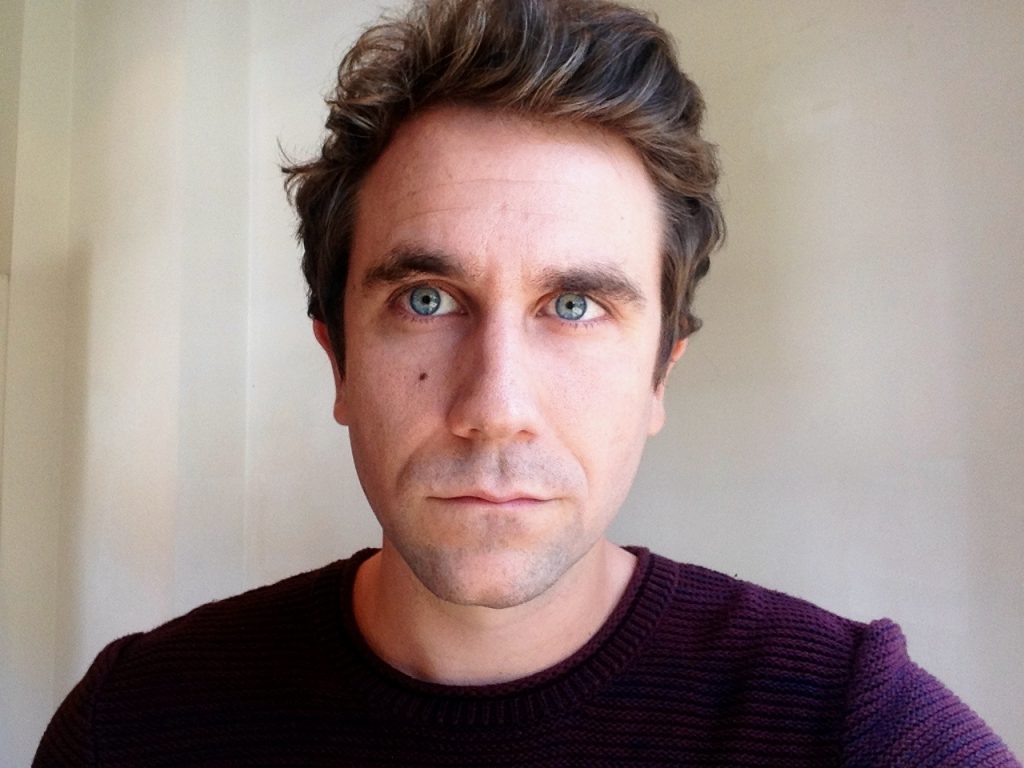
As well as the variety of subjects, there’s also a variety of form and voices…
Yes, I think this probably relates to the influence of other writers. I’m fascinated with the way poems talk with each other, and with ideas from elsewhere, so if, on a particular day, I’m writing differently, it’s probably because I’m reading differently.
I’m actually about to teach a course at the Poetry School on influence and taking inspiration from other writers. Karen McCarthy Woolf, who I was thrilled to get a cover quote from, is a master at this, weaving together ideas and voices, most obviously in her couplings. Bridget Minamore’s ‘zadie smith’s first novel is’ is another poem that does this amazingly. It’s probably the poem I give out at workshops most often.
I don’t have a coupling in Hotel, but there’s a glosa and a poem-beginning-with-a-line-by. Kay Ryan, whose quatrain I quote in that glosa, is a writer who’s been particularly important to me. Her ear — her facility with what she calls recombinant rhyme — is amazing. I hope there’s some of her influence visible in my shorter lyrics.
Often I can pinpoint the exact poem or poet I was reading when I wrote a particular piece of my own. ‘Making Love to the Knife Thrower’, for example, I wrote the same day I read Abigail Parry’s Jinx. I was reading Jane Hirshfield when I wrote ‘Sonnet’; Alex Bell when I wrote ‘The Englishman’; Kathryn Maris when I wrote ‘Test Scenario’. She’s probably been my most important influence, through both her work and her teaching.
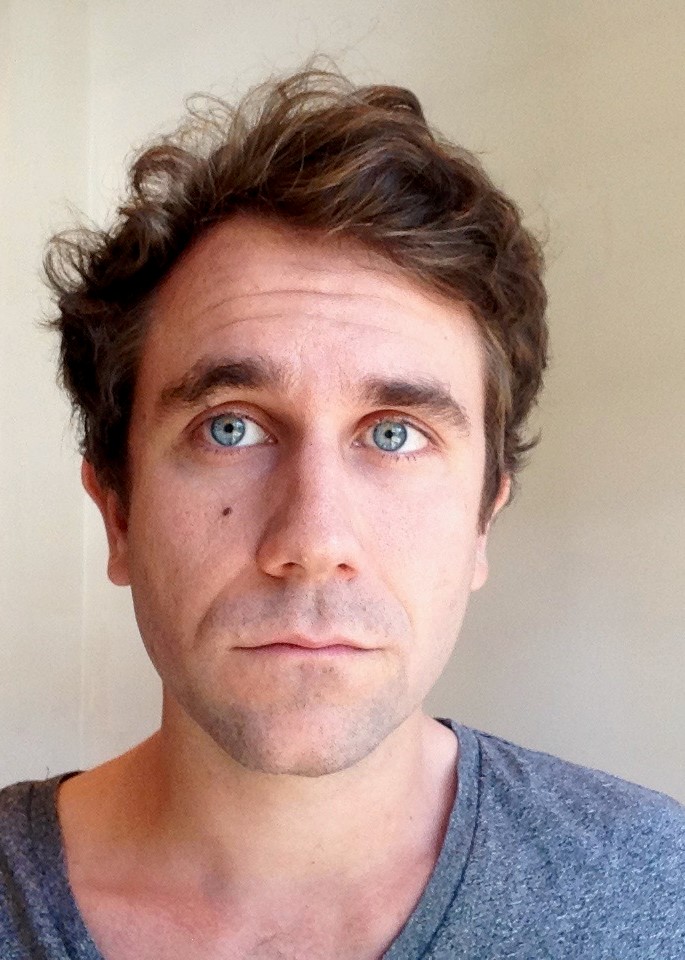
Your work is widely published and it also strikes me as being popular and accessible for non-poets. This feels like a real skill to have struck and maybe quite a rare one. Are you aware of finding this balance when you write or is it incidental?
That’s kind of you to say. It is something I work on, yes. I view the poems I write and read primarily as a method of communication. An attempt to get across some idea, or situation, or state of mind, or to receive one, even if it’s not the same one that was sent.
I don’t necessarily mean that I want my poems or anyone else’s to be ‘simple’ or parsable into plain prose. So much of what a poem is is what’s not translatable (I don’t say ‘reducible’) to prose. I only mean that I want the ones I show to other people to be thoughtful of them as readers.
You’ve waited a relatively long time before bringing out your first pamphlet. Were you waiting for the right set of poems to assemble as opposed to simply knowing you had enough ‘good ones’ to fill a pamphlet?
Mostly it took so long because my poems were very bad for ages and nobody sensible wanted to publish them. (I don’t say this to be performatively modest. Loads of even really amazing writers have written truly dreadful poems, and every time I find one it’s an enormous comfort to me).
I’m embarrassed looking back at some of the poems I shopped around in the past — and thankful to the editors who didn’t accept them — but I try to tell myself that this shame is evidence of my continuing growth, rather than of my enduring terribleness revealed by the clarity of hindsight.
Perhaps I’ll also feel embarrassed about the poems in Hotel in a few years, but I hope not, because the real answer to your question is that I waited for poems that still felt right to me even after a few months or years had passed. Ones that had a bit of staying power.
Getting to that point, both in terms of the poems themselves and my own confidence in them, owes in the most part to help from some wonderful teachers and organisations: Maura Dooley at Goldsmiths, Kathryn Maris, who I’ve mentioned, the Poetry School, TOAST Poets, Cove Park, and Verve. They’re all great.
Of course, by my own logic, feeling good about the poems in Hotel means I’ve stopped growing as a person. I guess you can’t have it both ways.
What’s next for you, following the launch of Hotel? Should we cross our fingers for a full collection from you any time soon?
I particularly love pamphlets, so I’m in no rush to bring out a full collection. Right now, I’m working on a pamphlet called Since We Last. There’ll be a sequence of ‘Since’ poems and a sequence of ‘We’ poems and a sequence of ‘Last’ poems, and they’ll all be very sad and about love.

Plus, we’ll be trying to set up a launch for Hotel once it’s safe to do so!
In the wake of the publication of Roxy Dunn’s wonderful new pamphlet Big Sexy Lunch and to an extent in lieu of the postponed launch that was originally planned for March 18th at Foyles on Charing Cross Road, I thought it would be a good idea to talk to Roxy about what kind of poet she is trying to be and what kind of poems she is trying to write. She doesn’t say this, but I will: she is a fresh and compelling new voice in contemporary poetry - modern and sharp, sassy, funny, but with an uncanny ability to disarm and move the reader at precisely the same time. (How does she do that?). Roxy has a big future in poetry. One look at her pamphlet will tell you why.
This is your second pamphlet, following 2017’s Clowning which you published with Eyewear. What’s changed in your writing since then?
Well, my initial response to this question (which sounds very basic as an answer!) is that my poems have become longer. (Clowning had a couple of four liners in it if I recall.) Expanding on an idea/pushing it further is something I’ve been actively focussing on. I also think this pamphlet is perhaps more cynical than my earlier work. Not in a bad way necessarily, hopefully just in an honest way.
As well as writing poetry, you’ve been in Babylon (Channel 4) and your Radio 4 comedy ‘Joz and Roxy are Useless Millennials’ has just come out. How do you think your work as a comedian and an actor interacts with your poetry?
I think I try to look for the humour in whatever it is I’m writing about. Not always, but you’ll often find at least small examples of it in most of the poems in this pamphlet. I also think I have a sense of hearing the lines as I write them which probably comes from my being an actor and wanting not only to read and write poetry but my desire to speak it aloud.
Damon Albarn, Drake, Netflix, Socrates, Hedda Gabler, Virginia Woolf — so many of your poems mix pop culture and ‘high culture’. How important do you think it is for poets to engage with the contemporary?
I actually think one of the pitfalls of my work is how contemporary it is. I remember another poet in a class of mine once very reasonably posing the question, ‘will this poem last?’ And it’s a very valid point. It feels like maybe it’s a trade off - that by writing in a way that people right now will immediately engage and relate to, you decrease the chances of that poem surviving beyond its immediate lifespan?
Frank O’Hara appears twice in the book. What do you think his influence is? Who or what else influences your work?
I really love his poems and he’s definitely influenced the way I write in terms of showing me how conversational and direct the language in a poem can be. In terms of what else influences my writing, I confess I draw on my own life a lot (which feels like I’m now confessing a confession!) This isn’t to say my poems are autobiographical but they all come from a place of having experienced either a similar situation, thought, or feeling to the one I’m writing about and then changing the specifics to fictionalise/poeticise it.
You have a sharp, breezy, very modern voice, so readers might miss the formal work going on, but there are Hannah Sullivan-esque couplets in ‘Weeds’, there’s a subtle enclosed rhyme scheme in ‘Sweet Casanova’, there’s even a glosa (a complex Spanish form of court poetry!). What’s your relationship with form?
I’m delighted you’ve alerted readers to the ‘formal work’ in that case! It’s definitely an aspect of poetry I feel less comfortable with but the Poetry School classes have been instrumental in alerting me to these forms/rhyme schemes you mention above. In fact, I remember Kathryn Maris introducing me to Hannah Sullivan’s work in one of the classes I took there. [Verve Stablemate] Ali Lewis was in the same class! Small world!
I know it’s sometimes hard to think forward when a pamphlet of yours has just been released - but do you see this is something that could lead to a collection some time in the not too distant future?
Ha, I feel so very far away from thinking about a collection! I’m still continuing to take classes and work on honing my skills as a poet. I feel like the stuff I’m writing at the moment is quite different to what I’ve previously written and I’m currently trying to push myself to be less literal when I write (which is a challenge for me!). I’d love to bring out a full collection at some point in the future but I’m not in any rush to. Right now my focus is on developing my craft, and also continuing with my other writing projects which aren’t poetry related, but feed into my poetry nonetheless.
________________________________________________________________________________
You can read Roxy’s poem ‘July 24th’, which was Poem of the Week on the Oxford Brookes Poetry Centre newsletter (and features in her new pamphlet Big Sexy Lunch) HERE.
…and her poem, Exes at Lunch, which was Poem of the Week at the LRB Bookshop HERE
Next Thursday the single most ambitious and important thing I’ve ever done kicks off. Verve Poetry Festival’s mission is to showcase the diversity, heart and dizzying talent of UK poets and change how you feel about poetry. It runs Feb 14-17 in Birmingham.
We have a ludicrous line up of 50+ poets who, I kid you not, are life=changing to hear and read. Poets like Vahni Capildeo, Roger Robinson, Bernadine Evaristo, Liz Berry, Polarbear, Inua Ellams, Momtaza Mehri, Andrew McMillan, Amy Key, Anthony Anaxagorou, Alison Brackenbury and many, many more!
Also, if you haven’t heard of those names, that’s *totally cool*. Actually, that’s IDEAL. I love that hundreds of poetry nerds enjoy Verve but what i love most is when people who aren’t writers attend / are dragged along and end up being astonished, moved, delighted.
Here’s what I mean: this is one of my favourite Verve photos. It’s form 2017, our first festival. My friend showed up for moral support and was so blown away by Emily Harrison in the Burning Eye Books Showcase event. That joy is what poetry should do for everyone, not just poetry lovers.
Some poetry you’ll love. Some you won’t (which is fine too!). The whole point of Verve is that you get to experience different kinds of art without all of the pretention, eye-watering prices, London-centricity or homogenous line-ups that usually happens in the literature world.
This year we’re experimenting with a bunch of new things. We’re launching an Annual Performance Lecture with poetry icon Anthony Anaxagorou, blending spoken word and academic discourse for an incisive, urgent, discussion of race and class in how page vs stage poetry is perceived.
We’re book-ending the fest with two music/poetry jams - Inua Ellams RAP Party on Thursday and The Funkenteleky Verve Special for Sunday’s finale, because everyone needs hip-hop and improv jazz in their life. We’re hosting our first ever Poet of the Festival, Sumita Chakraborty, all the way from the US!
We were blown away by UniSlam last year and so collaborated on a special Verve Prize at UniSlam 2019 for an individual performance, which was won by Prerana Kumar. We also commissioned Second City Poets (who won UniSlam 2018) for a new piece called Playground. See them above bout to drop the hottest album ever.
The point is Verve is about innovating new formats while amplifying important voices and work that is already here. We’re the extended family of indie publishers, editors, poetry nights, producers and even organisers.
There are some people and organisations to big up who have embraced the festival and our agenda and supported with their time and energy. Swift Foundation, Aki Schilz, Poetry School, Yoniverse, RAP Party, UniSlam, Apples and Snakes Midlands, Bohdan Piasecki, Funkenteleky, Nine Arches Press, The Emma Press, Burning Eye Books, Outspoken Press, Penned in the Margins, Nymphs and Thugs, Poetry Translation Centre. There are many more. They are the real MVPs of poetry. They support us and deserve in turn to be supported by you.
Anyway, in case you are in any doubt, the best way that you can support our work if you value what we do and why we do it is to attend our festival. After all, festivals are only ever as good as the audiences they attract. We promise you the poetry time of your life! I hope you can be there.
Ariana Brown wrote in her poem “Supremacy,” “in what version of the story do black women win?” I know from my time working on this book and other writings in my life that black women win when we write our own narratives. We win when we pry open the chains of the world and live for ourselves and each other. We win when we love ourselves.
Dreaming up A FLY Girls’ Guide to University was a love song to myself, black women, and other women of colour invested in breaking silences to push back against oppressive systems. I knew that I had spent too much time behind ivory towers to only hear the same story told inside and beyond them. Our stories are not here for diversity campaigns and our photos are not only for recruiting brochures. We are real and nuanced.
My mother is a writer and I have always been encouraged to write as a means of liberation for myself. Through her influence on my life, I have championed the idea of creating yourself to freedom, which is about owning our narratives and using creativity of our inheritance to map a journey toward self-actualization. Words may have been used to enslave me, but I have also used them to free me. And that impact is compounded when my voice joins together with others. It’s been the greatest joy to not write this book alone.
Suhaiymah, Waithera, and Lola, have always been there along the way. To see our stories intersect, diverge, and empower, has only strengthened our work.
This book is much more than just a collection of prose, poetry, and essays about our time at Cambridge. It’s about every institution that is steeped in power and elitism. Every institution that writes strict codes of who can represent it, and who it serves. This book will resonate with anyone who has ever found themselves in the midst of these institutions or wondering what the insides are like. We don’t represent every story, but we do represent our stories. Join us in having these discussions.
A FLY Girl’s Guide To University is out on Thursday 24th January and available for pre-order with free postage right up to the end of January. Order your copy by clicking on the book cover above!
Odelia, Suhaiymah, Lola and Waithera are launching their wonderful book at three (and only three) UK events this month! They will talk about the book, answer questions, read poetry and sign copies at inspiring events in Cambridge, Birmingham and London. Follow the links below to book tickets - you don’t want to miss them!
Cambridge - 26/01/19 - https://bit.ly/2CCEFGp
Birmingham - 30/01/19 - https://bit.ly/2FNgmIU
London - 02/02/19 - https://bit.ly/2AY8jG2
Helen Calcutt’s introduction to the anthology she instigated in aid of a cause so very close to her heart demands to be read. It eloquently and passionately states her reasoning behind and hopes for this unblinking but hopeful collection of poems and some of the background about CALM’s fight to raise awareness around this important issue. As such, we have decided to reprint it here in its entirety. Read, digest, and then please help by buying this incredible book. Help us help CALM. And most importantly of all, help yourself. Verve Poetry.
A few weeks after my brother Matthew died, my daughter told me she could see his face in the moon.
Days later, when she spied its silver disc in the window again, she said, that actually, it wasn’t just his face she could see. Everyone who had ever been sad was up there.
The moon changes, and so too, do all the people in its glow.
And that was when I realised ….
We all suffer. There’s this idea that the personal blow of death, or a trauma, can’t be relatable. And with society’s insufferable ignorance to human vulnerability (especially male vulnerability) it’s difficult to see how this could ever change. But I feel it can, if we stop the bullshit. If we accept the reality of the human condition – that it’s a diverse, beautiful, troubled, elated, mish-mash of a being – and if we live by its natural demands, we can influence what is considered ‘normal’ behaviour. What currently stands as such has been working against us for generations, and ultimately, brought us to the mental health crisis we find ourselves in today.
There are other factors to this issue – foremost, lack of funds to mental health services. But change starts with the individual, and this is one of the reasons I created this book. I received little-to-no help from any authority or public service after my brother killed himself. The doctor signed me off for three weeks and I was offered pills. What does this do? This response, though an initial kindness, had no relevance whatsoever to the patterns of my complicated grief, and this signalled a twisted understanding of it, or worse, a normalised ignorance to my vulnerability, in all its ugliness and truth. It also exposed a desire to sweep the problem under the carpet. As was the police’s response after my brother was found. Male dead, domestic tragedy. Tick the box. Move on.
It’s my understanding that, at present, society is shaped to deny us our defining human quality: our complexity. To be human is to be vulnerable. It is also to be aggressive, quiet, commandeering, violent; it depends on the circumstance you find yourself in. But these are all naturally existing, powerful sides to us. For whatever reason, society encourages an over-simplified existence, thus generating accepted ‘norms’ to our behaviour. We live, we die. We weep, we laugh. We suffer, we feel joy. It would seem we’re only ready to acknowledge and celebrate three of these six crucial human emotions.
And the desire to live up to this warped standard of being has sadly become greater than the desire for truth.
Women cry, men do not. Men hit women, women don’t hit men. Both examples of what we would consider a socially accepted norm, denies either party their natural complexity. Women do hit men, and though a violent and harmful act, it also highlights a particular type of vulnerability (perhaps a trauma too) that needs addressing. Men weep. It’s probably one of the deepest, moving sounds I have ever heard. Denying this as a normal attribute to male behaviour, almost refuses them the basic right to grieve, to shed a skin – to let it out. Grief isn’t just about death either. The effects of grief and trauma are very present in the body and mind of someone who has suffered divorce. The loss of a life we love, either from sudden house eviction to an extra-marital affair, can take 12 months at the very least, to overcome. We can even grieve, deeply and with absolutely profundity, the loss of our former selves in the wake of any personal travesty.
Not acknowledging the many possibilities, the many realities, to inner turmoil, is damaging. It represses and confuses us. Suicide rates are through the roof in the U.K. Male suicide stats are particularly devastating. 84 men kill themselves a week, my brother being one of them. The reasons why he did it, are complicated. And unknowable to us in many ways. But I will say, that the pressures of a society largely unwilling to accept the anxiety and despair of a ‘man’s man’ (holding down a job, a mortgage, child-care) will have had something to do with it.
The more we work to a fixed behavioural and emotional ‘standard’, the more we squash the natural intricacies of the broader human condition—not honouring or respecting who, and what we are. It’s time we changed that. After putting out the call for submissions and contributions to this anthology, I can see I’m not alone in my thinking.
The many poems I received, felt ready-made. Like they had been waiting at the bottom of a draw for the perfect opportunity and place to speak. I’m glad those who submitted felt this was it. The poems published here, and the adjoining blog, have given this book the truth it was seeking, showcasing humanity in all its vulnerable beauty. From the baby in the bath who knows that daddy is gone, to the woman whose father haunts her like a wolf through the window, anthology Eighty-Four gathers an exquisite collection of voices, singing completely different hymns, but together creating a sincere and authentic piece of music. From well-known poets, to new voices, there’s a glittering strength of character to this volume, because of the honesty from which its poems have been created, courageously and delicately embracing human complexity in all its forms.
I knew immediately the title would be ‘Eighty-Four’. Inspired by the success of the #MeToo anthology, I wanted to create something for a specific cause, that honoured and supported Project 84, by the charity CALM (campaign against living miserably) and drew attention to an issue in the only way I knew how: through poetry. But, for me, this number represents more than a devastating statistic. 84 men lost to suicide a week isn’t a simple black and white problem. And the problem itself, isn’t a symptom of any single cause. It’s part of a wider dilemma, acutely connected to our almost pathological denial of human fragility (connected perhaps, to our fear of immortality and death). If you’re reading this, you may not feel an immediate emotional connection to male suicide. But you can understand the prevalence and seriousness this number holds. You might also start to understand what it means for us as a society, and share in asking the crucial question: how shamefully oppressive have we allowed the world in which we live, to become?
Together, with the creative minds at Verve Poetry Pres, CALM, and my wonderful father and co-editor, we have created a book that, in opening its doors to the devastating theme of male suicide, has inspired a river of additional sub-themes and contexts: all relevant and connected to the central theme. At one stage, I considered grouping the poems under different chapters. But with time, I saw this wasn’t necessary. Anthology Eighty-Four has taken on its own life and shape, with each new phase of reading, though distinct, somehow aligned and in harmony with the one before it. There are poems here that sing to each other. Words and images that relate, yet with their altered backdrops, offering new perspectives. There are clear changes in voice and tone: the angry man, to the angry bereaved. This kind of opposition (or ‘balance’ as I like to call it) gives this anthology the emotional range it deserves, and is an authentic reflection of the overwhelmingly diverse, and sustained affects of suicide. Each poem conducts its own careful truth, told with searing conviction. Light and shade.
This book is for every single person who has ever felt silenced. For anyone who feels uncomfortable talking about trauma or grief, to those currently suffering from grief-by-suicide, or who want to learn more about mental health issues. Let this be your touch-stone. Not only does it prove how powerful poetry can be in bringing our injured worlds into view, it also exposes a new, hopeful reality. Saying to you – start talking and keep going. Live through and voice your vulnerability. Speak and live your humanity.
This book is also for Matthew. The older brother who was always giving. The first one to call me and tell me everything was going to be okay when I was pregnant. Whose laughter filled the room and infected every single person in it. Who was honest about not liking poetry. Who listened, and reserved judgement. Who was open and giving to every other human flaw, right to the end. Just look how this generosity has inspired others and lived on.
Helen Calcutt (December 2018).
Full list of poets included (A-Z): Anthony Anaxagorou, Romalyn Ante, Casey Bailey, Abie Budgen, Lewis Buxton, David Calcutt, Helen Calcutt, Louisa Campbell, Diana Cant, Garry Carr, Stewart Carswell, Gram Joel Davies, Michelle Diaz, Glyn Edwards, Carrie Etter, RM Francis, Alan Girling, Salena Godden, Emily Harrison, John Hawkhead, Martin Hayes, Alastair Hesp, Shaun Hill, Paul Howarth, Rosie Jackson, Janet Jenkins, Helen Kay, Asim Khan, Charles Lauder Jr, Hannah Linden, Jane Lovell, Nick Makoha, Liam McCormick, Andrew McMillan, Abegail Morley, Katrina Naomi, Antony Owen, Isabel Palmer, Ian Patterson, Mario Petrucci, Zoe Piponedes, clare e.potter, Peter Raynard, Brenda Read-Brown, Victoria Richards, Belinda Rimmer, Bethany Rivers, Stephen Seabridge, Richard Skinner, Caroline Smith, Janet Smith, Joelle Taylor, MT Taylor, Christina Thatcher.
Well, that went by quickly. Verve Poetry Press has completed it’s first full year as an indie poetry publisher for Birmingham. And what a year it’s been! We have published so many wonderful poets this year. Here’s the list: Matt Abbott, Casey Bailey, Jenna Clake, Nafeesa Hamid, Rupinder Kaur, Luke Kennard, Polarbear, Leon Priestnall, Amerah Saleh, and Hannah Swinger, as well as anthologies with Beatfreeks Poetry Jam, Verve Poetry Festival City Poems and Lunar Poetry Podcasts. You an read all about these wonderful poets and books via https:vervepoetrypress.com/shop
Our year end bash at Glee Club Birmingham was an absolute blast, featuring performances from all our poets and wonderfully hosted by poet with the mostest Leon Priestnall. The pics above are from this event. It was wonderful seeing our whole year of publishing alive on the stage and the sense of family this created. And we had a wonderful turnout too, which made us feel that people were glad to have us (which is a lovely feeling indeed).
The next six months ahead looks equally exciting for us, with books planned with incredible local poets Jasmine Gardosi, Kamil Mahmood, Yasmina Silva and Scarlett Ward - pamphlets due from the incredible Katrina Naomi, Ben Norris and Clare Trevien and two important books coming first thing in January - Eighty Four: Poems on Male Suicide, Vulnerability, Grief and Hope, edited by Helen Calcutt and in aid of CALM - and A FLY Girl’s Guide to University by Lola Olufemi, Odelia Younge, Waithera Sebatindira and Suhaiymah Manzoor-Khan. Believe me, you don’t want to miss either of these books. And with more wonderful books to announce for the Autumn soon, you can see we are in for another exciting year!
I hope you are all as excited as we are! We have been so well received as a brand new indie poetry press and would like to take this opportuniy to thankyou, our readers, our audiences, for all the support you have shown us in these last twelve months. We don’t deserve you but we strive to earn your continued support.
We’d also like the thank the bookshops who have taken the trouble and leap of faith required to stock some of our books when there are so many books available to stock - you are many and we are so thankful for every order, but we’d like to mention in particular, Waterstones Birmingham (essentially our home store), Blackwells Oxford, Pages of Hackney and Five Leaves Nottingham, for support beyond anything we could have expected in terms of both stocking of books and putting on events - thankyou!
The poets and I are so, so very grateful to all of you! Look out for more news from us in the new year and have a wonderful and peaceful Christmas Season. With all our best wishes. VPP! 🙂
Three years ago during my final year studying History at Cambridge, me and three of the most wonderful, fiery, radical & brave women I know – Lola Olufemi, Waithera Sebatindira and Odelia Younge – decided to write a book documenting our experiences as women of colour in an institution that so violently erased our realities, histories and sometimes our very existences; in fact an institution which ideologically and financially was rooted in and flourished on the concept and consequences of slavery, racism and colonialism.
We all 4 initially met at “FLY” – a group founded before we arrived, specifically as a space for women and non-binary people of colour. In that space was the first time I found the truth of my experiences at Cambridge validated and recognised, and I found I didn’t have to be weighted down by the experience of white supremacist patriarchy but that I could funnel my feelings into anger and creativity! It sparked my engagement with radical politics, poetry and decolonial feminism ever since.
The book, of course, was not something anyone wanted to publish. One publisher actually told us it would have been better if it were fiction – a reminder that it is easier to empathise with women of colour when we aren’t real.
However, alhamdulillah, this year @vervepoetrypres listened to our vision, heard us and recognised that this book needs to exist. IMHO we don’t particularly need a best seller or big recognition.
. I am excited solely because this book is a testament to the experiences that never get heard and thus are never accepted as real. But we are real. Our experiences are real and this book is a testament to us and every woman of colour struggling to articulate how it feels to be in spaces built for others.
We publish in January inshaAllah (and you’re all invited to the launches! Dates tbc!) but you can pre-order RIGHT NOW by clicking on the book cover illustration on this page.
Above all I hope our FLY GIRL’S GUIDE can be a testament, a refuge and a friend to anyone who needs it. I am so thankful for all the WOC in my life and ultimately, always, to Allah.
Suhaiymah Manzoor-Khan @thebrownhijabi
Proud to be sister press to Verve Poetry Festival. See what they’re up to here!
By continuing to use the site, you agree to the use of cookies. more information
The cookie settings on this website are set to "allow cookies" to give you the best browsing experience possible. If you continue to use this website without changing your cookie settings or you click "Accept" below then you are consenting to this.
